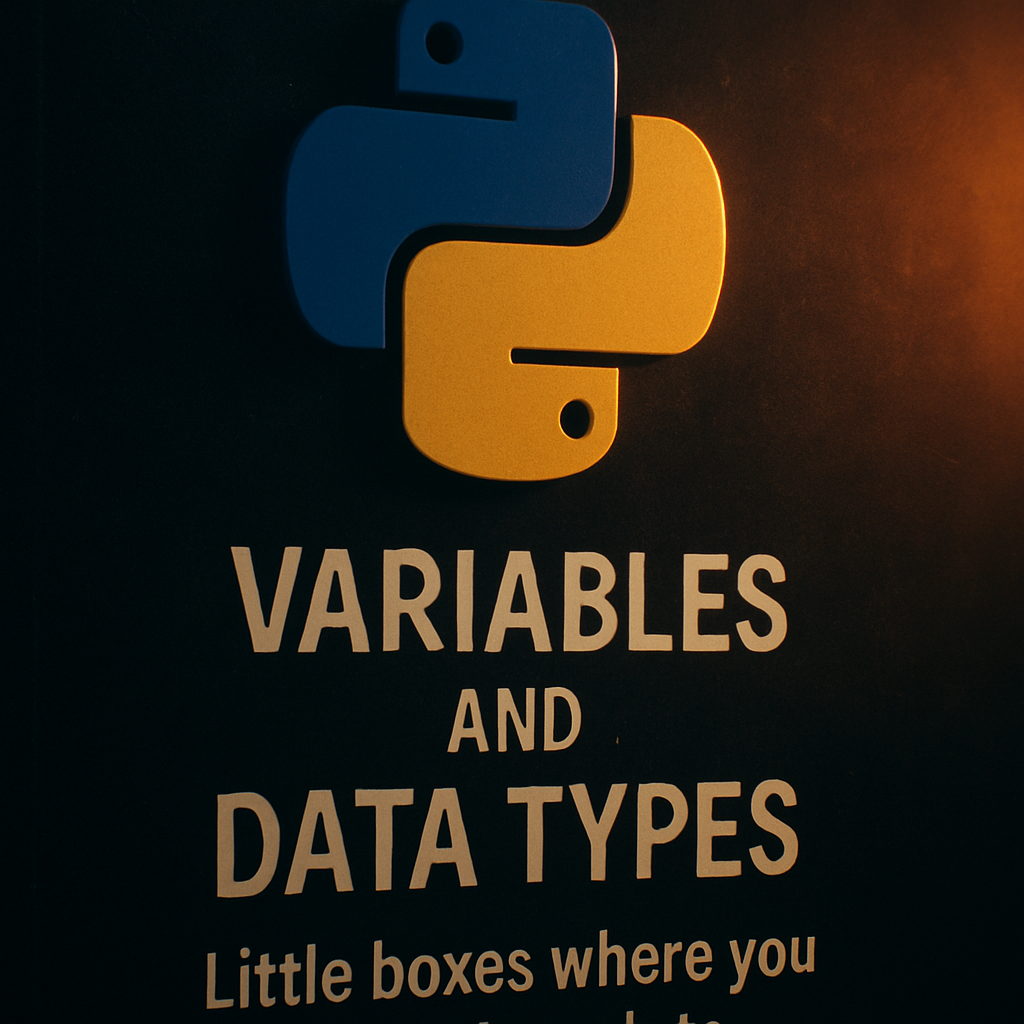Kickstart Your Python Journey: Mastering Variables and Data Types
Embark on your Python programming adventure by exploring the fundamental concepts of variables and data types, the essential elements to build any Python application.
Understanding Variables: The Building Blocks of Python
Variables are foundational to Python programming, serving as containers that store data values. You can think of them as little boxes with labels, holding various types of information like numbers, text, and more. They allow you to manipulate and interact with your data efficiently, making your code more dynamic and powerful. Whether you’re storing a simple number like your age or a complex floating-point number like a score, variables make it possible.
Python is a dynamically-typed language, meaning you don’t need to specify the type of a variable when declaring it. This flexibility enables rapid development and is one of the many reasons new developers find Python approachable and enjoyable to learn.
Exploring Python Data Types
Understanding data types is crucial for effective programming. In Python, common data types include integers, strings, floats, and booleans. Each serves a specific purpose and offers unique functionalities:
- Integers: Whole numbers without any decimal points. They’re perfect for counting and indexing tasks.
- Strings: Collections of characters used to represent text. Useful in situations where you’d handle names, addresses, or any textual data.
- Floats: Numbers with decimal points, offering more precision than integers. Ideal for calculations requiring exactness, such as financial computations.
- Booleans: Represent truth values. They are instrumental in making decisions in code through conditional statements.
Engage with Our Interactive Google Colab Session
Curious to try these concepts in action? Dive into our interactive Google Colab session where you can experiment with variables and data types directly in a shared coding environment. Colab provides a collaborative space where you can write and execute Python code seamlessly, making it easier to learn through practice.
By following along with our structured notebook, you’ll gain hands-on experience that solidifies your understanding of how these data types work in real-world scenarios. Not only will you learn to declare and manipulate variables, but you’ll also start employing them in basic logical operations.
Conclusion: Begin Your Python Adventure
Starting with variables and data types is just the beginning of your Python journey, a language celebrated for its simplicity and versatility across various domains. As you master these fundamental elements, you’ll lay a strong foundation to tackle more complex Python programming challenges.
Excited to deepen your knowledge? Join the discussion in our interactive sessions and continue exploring the endless possibilities Python offers. Begin your adventure in Pythonic programming and watch your skills transform from day one. Let’s get coding!

Leave a Reply